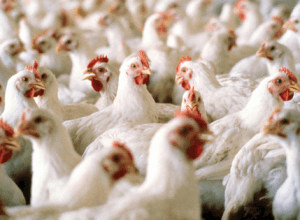Epidemiologist call for biosecurity measures against Avian Influenza in Ghana
 Dr Paul Nomuka Polkuu, an epidemiologist, has emphasised the need for effective biosecurity measures implementation by stakeholders to control Avian Influenza (A1) in Ghana.
Dr Paul Nomuka Polkuu, an epidemiologist, has emphasised the need for effective biosecurity measures implementation by stakeholders to control Avian Influenza (A1) in Ghana.
He said biosecurity measures like segregation, movement control, sanitation and strict adherence to other good industry practices in the poultry industry could prevent the entry of the disease, also called Bird flu, into the country.
Dr Polkuu, the Head of the Epidemiology Unit of the Veterinary Services Department (VSD) in Accra, made the call when he gave a presentation at a day’s workshop.
The workshop, organised by the National Disaster Management Organisation (NADMO), in collaboration with VSD and the Ghana Health Service on the theme: “Advocacy Programme for Communities at Risk on Avian Influenza,” had about 80 participants.
It aimed at building partnership with stakeholders in the fight against AI and to also give an update on the outbreak of diseases in the country.
Participants, selected from the Sunyani Municipality, Asutifi North and South, Sunyani West and Tano North and South Districts comprised staff of VSD and NADMO, representatives of security agencies and religious bodies as well as poultry farmers.
Dr Polkuu said Bird Flu was first introduced into the country in 2007 through importation of poultry, poultry products, equipment and poultry feed from infected countries and unofficial poultry trade between Ghana and its neighbouring countries.
To prevent the spread of the disease Dr Polkuu suggested the “early reporting of any mortality for laboratory confirmation for rapid detection and immediate implementation of control measures”.
He said among clinical signs for suspicion of a viral disease attack on birds were; sudden death without premonitoring clinical, marked loss of appetite/reduced feed consumption, and respiratory difficulties.
Alhaji Abubakar Sufyan, a staff of the Health Promotion Unit, Ghana Health Service (GHS), giving a presentation on; “Community Social Mobilisation (SOCMOB): Avian Influenza” defined social mobilisation as a process of bringing together all feasible and practical inter-sectoral social allies to raise people’s awareness of and demand for AI prevention, detection and control.
He said effective risk communication was an essential element of outbreak management since in the event of a real or potential public health threat; “treatment options may be limited, direct interventions may take time to organise and resources may be few”.
“The SOCMOB approach should support actions and priorities identified by communities, especially the most vulnerable groups whose rights tend to be consistently denied,” Alhaji Sufyan said.
He said activities of SOCMOB must, however, receive support and co-ordination services from the Government and other stakeholders for the group to achieve the needed impact in their operational areas.
The Tano North Co-ordinating Director, Mr Kwasi Mintah Benin, who chaired the function, advised participants to impart the knowledge acquired to their colleagues for a positive impact on their communities.
Source: GNA
